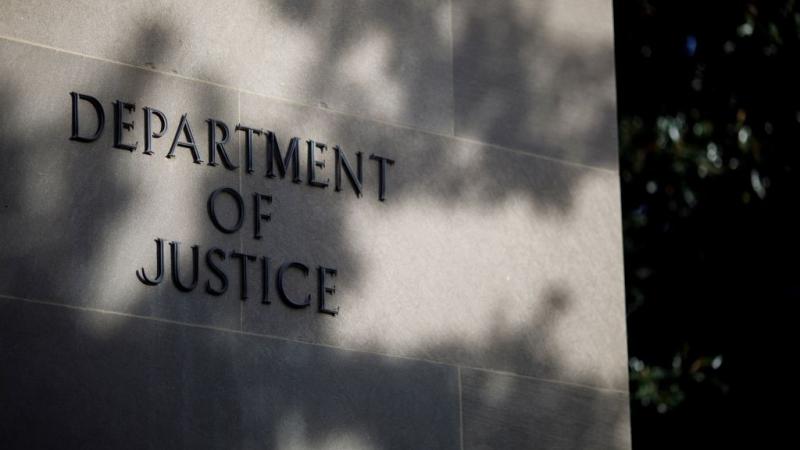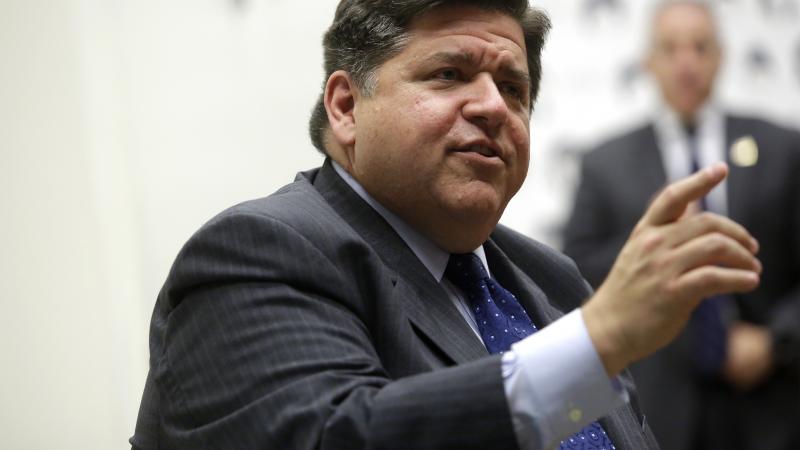Trump’s peacemaking effort hits European snags with Ukraine on secondary sanctions
Secondary Sanctions: For the American president, the European hesitance to commit fully to working against Russia, even limited to economic sanctions, is a sticking point that makes unilateral U.S. action difficult.
President Donald Trump’s efforts to end the Ukraine War have led to tensions with European leaders as he struggles to push them toward decisive actions to screen out Russia. While Ukraine’s neighbors were quick to supply Kyiv with military equipment and to impose direct sanctions on Moscow, they have been slow to embrace secondary sanctions on Russian trading partners and to wean themselves off Russian oil.
For the American president, the European hesitance to commit fully to working against Russia is a sticking point that has him unwilling to make major moves unilaterally.
“It's really the question the president posed to the Europeans last weekend: You know, ‘are you willing to do what it's going to take to end this war?’” former Deputy National Security Advisor Victoria Coates said on the “John Solomon Reports” podcast.
“Because we have the tools and [Russian President Vladimir] Putin knows it, and so does [Chinese President] Xi [Jinping],” she added. “But if you [Europe] don't have the will to do this, then this is all posturing, and we are better off going to the table and striking whatever deal needs to be struck to end the killing, and then do what we can to fortify NATO's eastern front.”
“That's not a great option, but that's probably the least worst option,” she insisted. “That will face us if the Europeans aren't willing to work with the Americans and take the economic steps to end the war.”
Trump has repeatedly urged European nations to stop purchasing Russian oil, even through immediaries, asserting that it has served to mitigate the impact of sanctions on the Russian economy and allowed the war to continue. Coates pointed to recent comments from Trump suggesting that the Americans might be prepared to walk away if the Europeans failed to join them in major economic moves.
“The President's statement over last weekend was very important, when he said that he is prepared to take significant actions economically against Russia but that the price for that is going to be the Europeans have to stop buying Russian oil and gas, and they have to do it too,” she added.
Coates: Trump "won't go it alone"
Notably, Coates conceded that imposing secondary sanctions, especially on China, would come with “economic pain” for the American people and that Trump, therefore, would not make such a move without the Europeans doing so as well.
“That will be the nuclear option, but they have to be unified. So, I think that's the message the President's sending, which is he's willing to do this, but he's not going to go it alone and punish the American people and let the European people off the hook,” she asserted.
It may prove a race against time, however. At present, the Russians are assaulting major Ukrainian cities in the country’s east, namely Kupyansk and Pokrovsk. Both cities are key logistical hubs that could help the Russians advance significantly further into Ukraine, once captured.
“I think the fourth quarter of this year of 2025, is going to be decisive here,” Coates opined. “And yes, I think the Russians, you know, are doubling down on the military campaign. They're trying to take as much territory as they can.”
She further highlighted what she believed to be President Joe Biden’s mistake of promising “as much as it takes, for as long as it takes” for Ukraine to defeat the Russians.
Ultimately, whether the Europeans will heed Trump’s calls to sever their energy relationship with Russia remains a matter of speculation. But the domestic situation on the European homefront is somewhat unstable and significant economic disruptions could spark chaos.
European Union in turmoil: Immigration, a right-leaning voter wave, and energy costs
A recent survey showed that formerly positive attitudes towards migration in Europe are changing. The Guardian reported that most Western Europeans think immigration over the past decade has been too high, and their governments have handled it badly, with more believing immigration has been negative for their country than not, a survey has shown.
The Guardian made a connection between the declining support for immigration in the EU and a surge of conservative voting — characterizing it as "far-right" — saying "Immigration has long been pushed as a top political issue by Europe’s far-right parties. More recently, their increasing electoral success has prompted mainstream conservative parties to copy their hardline agenda, further increasing [immigration's] salience."
The cost of energy is always a hot-button issue for voters, although EU household electricity prices increased in 10 EU countries and decreased in 14 in the second half of 2024, compared with the second half of 2023, according to the EU's Eurostat website. The data service also reports that the EU ban on seaborne imports of Russian crude oil, which entered into force in December 2022, along with the subsequent embargo on refined oil products, contributed to a significant decrease in imports of these goods from Russia. As a consequence, the share of petroleum oil imports from Russia fell from 29% in Q1 2021 to just 2% in Q2 2025. Over the same period, import shares from the United States and Norway increased.
At the end of the day, it remains to be seen if Europe is unwilling to move on secondary sanctions altogether, and whether Trump and his advisers think the U.S. can go it alone.
Ben Whedon is the Chief Political Correspondent at Just the News. Follow him on X.
The Facts Inside Our Reporter's Notebook
Links
- “John Solomon Reports” podcast
- Eurostat
- The Guardian reported
- Follow him on X














